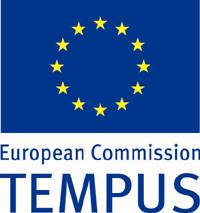Publications
2011
Ontology-based Data and Process Governance Framework – The Case of e-Government Interoperability in Palestine
In pre-proceedings of the IFIP International Symposium on Data-Driven Process Discovery and Analysis (SIMPDA’11). Pages(83-98). ISBN 978-88-903120-2-1. Campione, Italy. June 30, 2011.
Keywords: Interoperability, Data Integration, e-Government, Ontology, Data Governance, Process Governance, Business Process Modeling
author = {Mustafa Jarrar, Anton Deik and Bilal Farraj},
title = {Ontology-based Data and Process Governance Framework – The Case of e-Government Interoperability in Palestine},
booktitile={Pre-proceedings of the IFIP International Symposium on Data-Driven Process Discovery and Analysis (SIMPDA’11)},
year = {2011},
pages={83-98},
publisher={},
address={Campione, Italy},
month={June},
ISBN={978-88-903120-2-1},
url = {http://www.egovacademy.ps/publications/#OF11}
}
Palestinian E-Government Needs Assessment: Skills Analyses and Training Program
Deliverables: D1.1, D2.1, D3.1,Pal-Gov Project (511159-TEMPUS-1-2010-1-PS-TEMPUS-JPHES), May 2011.
 – Abstract
– AbstractThe methodology used to identify the missing skills was analytical. That is, the Palestinian e-government architecture was studied and analyzed and the skills and know-how needed to implement and deploy this were identified in consultation with the governmental and private sectors. We then estimated the present skills and know-how of the Palestinian governmental and private sectors. From the identified present skills and required skills, the missing skills were deduced. This allowed us to derive the Intended Learning Outcomes that are required for the suggested training program.




